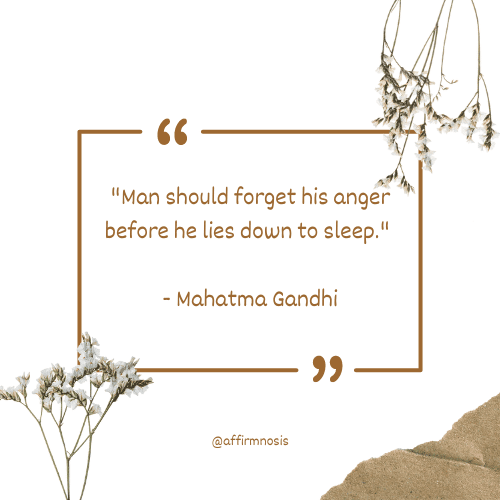Getting enough quality sleep is vital to good health and wellbeing. However, many people struggle with falling asleep or remaining asleep throughout the night.
As a result, sleep aids such as sleep hypnosis have become increasingly popular in recent years. Sleep hypnosis is a natural approach to achieving better sleep that involves guided relaxation techniques that help you reach a state of deep relaxation and focus conducive to restful sleep.
Definition of Sleep Hypnosis
Sleep hypnosis, also known as hypnotherapy for sleep, is a type of therapy that uses guided relaxation techniques to help individuals enter into a state of deep relaxation and focus for better sleep.
During this process, practitioners use verbal cues or hypnotic suggestions that promote calmness while reducing distractions or stressors that can disrupt normal sleeping patterns. Sleep hypnosis helps individuals tap into their subconscious minds which are responsible for determining behaviors such as sleeping habits.
Brief history of Sleep Hypnosis
The practice of using hypnotherapy for better sleep dates back thousands of years ago when ancient Greeks used it to help cure insomnia. In the 18th century, Franz Anton Mesmer introduced what he called “animal magnetism” or “mesmerism,” which involved inducing a trance-like state through eye fixation and other techniques.
In modern times, interest in sleep hypnosis grew during the 1950s when researchers began studying its effectiveness in treating various disorders such as anxiety and depression.
Benefits of Sleep Hypnosis
Sleep hypnosis provides numerous benefits beyond just improving one’s ability to fall asleep at night. One benefit includes improved overall well-being through reduced stress levels which ultimately leads to better cognitive function throughout the day.
This therapy also helps people suffering from chronic pain by promoting deeper relaxation, which can in turn help reduce inflammation and pain levels.
Additionally, sleep hypnosis has been shown to be effective in treating anxiety or depressive disorders, providing an excellent natural alternative to pharmacological interventions. Overall, sleep hypnosis is a practical solution for people struggling with various sleep disorders who want to improve their quality of life and mental health without the use of drugs or medication.
Understanding Sleep Hypnosis
What is hypnosis?
Hypnosis refers to a state of consciousness during which an individual becomes highly responsive to suggestions made by another person. In this state, the mind is more open and receptive, making it easier for suggestions to bypass the conscious mind and directly influence the subconscious.
The hypnotic state can be induced in various ways, including through guided meditation, visualization techniques, or relaxation exercises.
During hypnosis, the individual remains in control of their thoughts and actions but may experience a sense of detachment from reality. This creates a heightened awareness where they are more attuned to their inner experiences, including emotions and sensations.
How does sleep hypnosis work?
Sleep hypnosis works by inducing a hypnotic state while guiding an individual into a deep state of relaxation that promotes sleep. It utilizes suggestions aimed at alleviating stress and anxiety; thus reducing any mental barriers that might prevent someone from falling asleep naturally.
The process starts by calming the nervous system using focused breathing exercises or progressive muscle relaxation techniques.
Once relaxed, various techniques such as guided imagery or positive affirmations help create peaceful imagery in their minds. This helps promote better sleep quality as these methods allow individuals to enter deeper stages of sleep.
Different types of sleep hypnosis
There are many types of sleep hypnosis techniques available that use different approaches depending on what an individual prefers or needs. Many individuals benefit from recordings specifically designed for promoting better sleep quality; others prefer one-on-one sessions with certified practitioners who can personalize their treatment plan accordingly.
Some popular types include guided imagery where specific images are used to evoke specific emotional states conducive for good sleeping habits. Another uses progressive muscle relaxation or P.M.R., which aims at relaxing muscles gradually in order to bring about physical relaxation and calmness before going to bed.
Who can benefit from sleep hypnosis?
Sleep hypnosis can benefit anyone who experiences insomnia, sleeplessness, or difficulty sleeping. It is also useful for those who experience high levels of stress and anxiety, as it helps them relax before bedtime.
It has also been shown to help those with post-traumatic stress disorder (PTSD), chronic pain conditions, or other health issues that may interfere with sleep quality. People who face a lot of pressure or have busy schedules could also benefit from using sleep hypnosis as a tool for getting better rest.
Overall, Sleep Hypnosis is a safe and natural way to promote high-quality sleep and improve overall well-being. By understanding the different techniques used and how they work, anyone can achieve better restorative sleep.
Techniques used in Sleep Hypnosis
Progressive Muscle Relaxation: Releasing Tension to Promote Sleep
One technique used in sleep hypnosis is progressive muscle relaxation. This involves tensing and releasing different muscle groups throughout the body, starting from the toes and moving up to the head.
By doing this, you can release built-up tension and promote relaxation throughout your entire body. It’s an especially effective technique for people who hold tension in their muscles due to stress or anxiety.
During a sleep hypnosis session that includes progressive muscle relaxation, the practitioner will guide you through each muscle group, instructing you to tense each one for a few seconds before releasing it. This process helps promote physical relaxation and can help quiet your mind, making it easier to fall asleep.

Guided Imagery: Creating a Calm Mental Space
Another technique commonly used in sleep hypnosis is guided imagery. This involves visualizing calming scenes or situations that help promote relaxation and reduce stress levels. During a guided imagery session focused on sleep, the practitioner may guide you through different scenarios designed to help you relax and drift off into sleep.
For example, they may have you visualize yourself on a peaceful beach at sunset or floating on a calm lake surrounded by nature. The goal is to create a calming mental space that can help quiet racing thoughts and reduce feelings of anxiety or stress that may be keeping you awake.
Breathing Exercises: Calming Your Body and Mind
Deep breathing exercises are another common technique used during sleep hypnosis sessions. By focusing on slow, deep breaths, this technique can help calm both your body and mind, making it easier to fall asleep.
During a breathing exercise in sleep hypnosis, the practitioner will instruct you on how to take slow breaths from your diaphragm rather than shallow breaths from your chest. This technique helps promote relaxation throughout the body and can help reduce feelings of anxiety or stress that may be interfering with sleep.
Positive Affirmations: Promoting a Positive Mindset for Better Sleep
Positive affirmations are often used in sleep hypnosis to promote a positive mindset around sleep. These affirmations may focus on reminding you that you are worthy of restful sleep, or they may focus on promoting relaxation and calmness.
For example, a practitioner might recite phrases like “I am calm and relaxed” or “My mind and body are at peace.” Over time, these positive messages can help shift your mindset towards one that promotes better sleep quality, which can lead to more restful nights.
Preparing for a Sleep Hypnosis Session
Creating a relaxing environment is key to effective sleep hypnosis. The ideal environment should be quiet, dark and free of distractions.
Avoid any stimuli that may interfere with the process, such as TV or electronic devices. Dimming the lights or using candles can create a calm ambiance that helps to relax and focus the mind.
Choosing the right audio recording or practitioner is also important. When selecting an audio recording, choose one that has positive affirmations and soothing music or sounds.
It’s essential to find a practitioner who has experience in sleep hypnosis and aligns with your preferences. Setting intentions and goals for the session is another crucial aspect of preparation for sleep hypnosis.
Take time before the session to set clear intentions of what you want to achieve through sleep hypnosis. This can include calming anxiety, improving mood, reducing stress levels, promoting better sleep quality or enhancing overall wellness.
The Process of a Sleep Hypnosis Session
The process of a sleep hypnosis session typically consists of four phases: Induction phase, deepening phase, suggestion phase and awakening phase. In the induction phase, you enter into a state of relaxation by focusing on your breathing and eliminating any external distractions.
The deepening stage involves deeper relaxation techniques like progressive muscle relaxation or guided imagery that lead to even greater levels of focus and calmness.
During the suggestion stage, positive affirmations are introduced that promote better sleep quality by reducing anxiety levels and promoting overall well-being. In the awakening stage you are brought back to full consciousness so you can go about your day feeling refreshed and energized after your restful night’s sleep.
Tips for Successful Sleep Hypnosis Sessions
Consistency in regular practice will help improve your effectiveness with this technique over time. It’s important not to get discouraged if results don’t come instantly; many people experience success after a few sessions. Patience and trust in the process is essential for successful sleep hypnosis.
It takes time to develop the necessary skills and mindset to achieve the full benefits of sleep hypnosis. Avoiding distractions during sessions is crucial, so it’s best to turn off phones, computers, televisions, or any other devices that may interrupt your session.
Conclusion
Sleep hypnosis is a powerful tool that can improve overall well-being by promoting better sleep quality. By creating a relaxing environment, choosing the right audio recording or practitioner and setting intentions and goals for each session, individuals can reap the benefits of this technique.
Remembering to be consistent in practice with patience and trust in the process will ultimately lead to better results. So don’t hesitate- try out Sleep hypnosis today and enjoy better overall wellness!
20 quotes on sleep:
- “Sleep is the best meditation.” – Dalai Lama
- “The best bridge between despair and hope is a good night’s sleep.” – E. Joseph Cossman
- “Sleep is the golden chain that ties health and our bodies together.” – Thomas Dekker
- “A good laugh and a long sleep are the best cures in the doctor’s book.” – Irish Proverb
- “Sleep is that golden chain that ties health and our bodies together.” – Thomas Dekker
- “There is a time for many words, and there is also a time for sleep.” – Homer
- “Sleep is an investment in the energy you need to be effective tomorrow.” – Tom Roth
- “Your future depends on your dreams, so go to sleep.” – Mesut Barazany
- “Sleep is the most innocent creature there is and a sleepless man the most guilty.” – Franz Kafka
- “Sleep – the most beautiful experience in life – except drink.” – W.C. Fields
- “Man should forget his anger before he lies down to sleep.” – Mahatma Gandhi
- “The amount of sleep required by the average person is five minutes more.” – Wilson Mizener
- “Sleeping is no mean art: for its sake one must stay awake all day.” – Friedrich Nietzsche
- “No day is so bad it can’t be fixed with a nap.” – Carrie Snow
- “Sleep is the best cure for waking troubles.” – Miguel de Cervantes
- “There is more refreshment and stimulation in a nap, even of the briefest, than in all the alcohol ever distilled.” – Edward Lucas
- “Sleep, rest of nature, O sleep, most gentle of the divinities, peace of the soul, thou at whose presence care disappears, who soothest hearts wearied with daily employments, and makest them strong again for labour!” – Ovid
- “Sleep hath its own world, and a wide realm of wild reality. And dreams in their development have breath, and tears, and tortures, and the touch of joy.” – Lord Byron
- “The minute anyone’s getting anxious I say, ‘You must eat and you must sleep.’ They’re the two vital elements for a healthy life.” – Francesca Annis
- “Sleep is the interest we have to pay on the capital which is called in at death; and the higher the rate of interest and the more regularly it is paid, the further the date of redemption is postponed.” – Arthur Schopenhauer
These quotes emphasize the importance of sleep for health, wellbeing, and productivity.
20 affirmations to help with sleep
- “My body and mind are ready for a peaceful and deep sleep.”
- “I deserve restful, uninterrupted sleep.”
- “I am releasing the day’s stress and entering into tranquility.”
- “Each breath I take is drawing me deeper into sleep.”
- “I let go of all the worries of the day; they have no place in my sleep.”
- “My bed is a sanctuary, inviting me to deep rest.”
- “I am calm and relaxed. Sleep is coming naturally to me.”
- “I am grateful for this time to rest and restore my body.”
- “My mind is quiet, my thoughts are still, I am ready for sleep.”
- “My body is tired and ready for a good night’s sleep.”
- “Sleep comes easily and naturally to me.”
- “I am in control of my sleep patterns and tonight, I choose to sleep well.”
- “Tomorrow is a new day and I will wake up refreshed.”
- “Every muscle in my body is relaxed, preparing me for sleep.”
- “I am letting go of today and welcoming peaceful dreams.”
- “My breathing is slow and steady, lulling me to sleep.”
- “I am deserving of rest, and tonight, I will get it.”
- “As I close my eyes, I am inviting calmness and tranquility.”
- “With each passing minute, I am becoming more and more ready for sleep.”
- “Tonight, my sleep will be restful and restoring, preparing me for a new day.”




























































